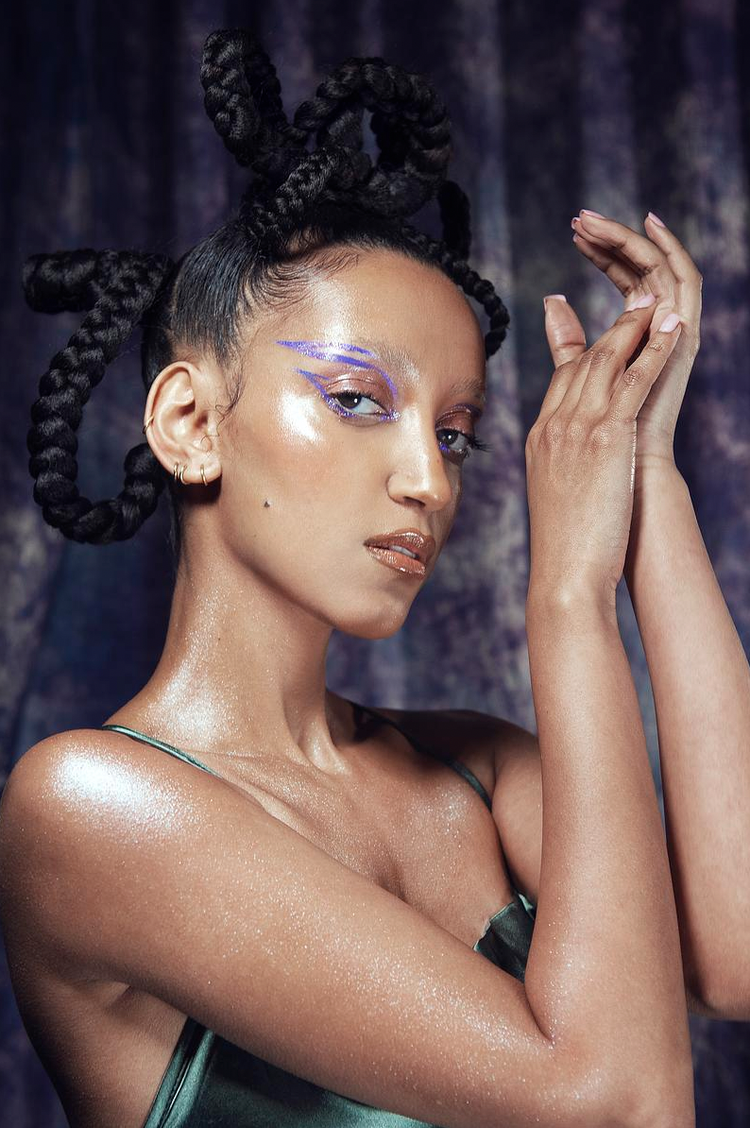"ubiquitous", track by track by Helen
Photo credit: @davidjaelin
The word ubiquitous can be defined as omnipresent or found everywhere, which to me that spoke to the profound, oftentimes unrecognized influence black women have had in countless facets of society and pop culture. Within this EP, I wanted to capture my experiences as a Black woman in predominantly non-Black spaces and through it empower other women that may have had similar experiences.
The first song on this EP is called “qt” and I really wanted this song to be the first song of the EP because it encapsulates the overall energy of the album; it’s fierce, bold, and unfiltered. This song was inspired by being catcalled; men who catcall often have trouble accepting the following rejection, so they project and get upset about it. It’s really an uncomfortable and dangerous situation that a lot of women are put in; as a Black woman, there have been many instances where I’ve been told that I have an attitude for simply setting my boundaries and saying no. I wrote this song to state that my confidence, looks, and body as a woman isn’t for anyone but myself.
The song “mediocre hoe” talks about microaggressions and performative activism. This song was inspired by the real-life experiences that I have had being a Black woman in predominantly white or non-black spaces. At one point in my life, there was a person who wanted to act like a friend but would constantly make borderline racist comments about my hair, appearance, culture, and people. I didn’t really understand what was happening then because this same person would go online and preach about racism and how black lives matter. As I found myself in more of these spaces, like work, college, and the music industry, I started to notice this same pattern in the other people around me. Eventually, after talking to my black friends and peers, it was obvious that what I was experiencing was a microaggression. People would post about Black struggles and be “woke” online but then would go and treat the actual Black people in their lives with the same aggression and tone as an oppressor. It’s frustrating seeing your own community and people struggle daily just to have someone go and make it a trend or a personality that they can just wash off and ignore later. It’s belittling to the people that have to face racism daily without any means of escape. I wrote this song to express my frustration and to let myself know that my emotions were valid.
The song “ick” was super fun to write and I think it also helped to kind of lighten the mood of the EP. Women are often held to a double standard in many aspects of society and it’s seen a lot in romantic relationships. This song defies those double standards; like what you want to like and don’t waste your time on anyone that isn’t worthy of it. This song was inspired by the many conversations that my best friends and I have had; we’re all in our mid-twenties and have learned to put ourselves first. I want my listeners to listen to this song and feel sexy, cute, and deserving of the best of the best whether that’s in a relationship or not.
“Copycats” was one of the last songs I finished writing for this project. It was inspired by the fact that a lot of Black history has been erased or stolen; it touches on cultural appropriation and the reclamation of that history. I think people still try to downplay cultural appropriation, they forget how deeply rooted it is in racism, and how it’s a mockery of Black people’s and other POCs' culture.
I wrote “Talk” right after writing the first track on this album “qt” but it ended up being released way before “qt”; you could say they were actually inspired by each other. “Talk” discusses society’s tendency to try and humble women, especially Black women. The lyrics that stick out the most are “you’re sick of me but I’m what you worship, how you sick of me when I’m what you worship?” because it speaks to how Black women have so much influence in society and pop culture but are the most disrespected in society. Being a Black woman is not easy but it is so beautiful; it’s a part of me that I would never ever take away. It frustrates me that Black women aren’t celebrated enough, credited enough, or loved enough, and through this project, I wanted to celebrate and love us.
“Bitter Bitch” was a song that I wrote when I was in the middle of a turning point in my life. Prior to that, I used to let others control my life and I had been really depressed because of it. I think during the pandemic though, I realized that I couldn’t keep living that way and so I started to really go after my dreams, put myself first, and set boundaries. As I was doing that, I started to notice that it made some people uncomfortable because it was breaking the mold that they had put me in. This song was the realization that no matter what, there will always be someone that will see me as the villain in their life, and if putting myself first is what makes me the villain or the bitch then that is what I will be. I wrote this song so that anyone listening to it feels that they are worthy of respect and love, and anyone against that is not worth the time.

